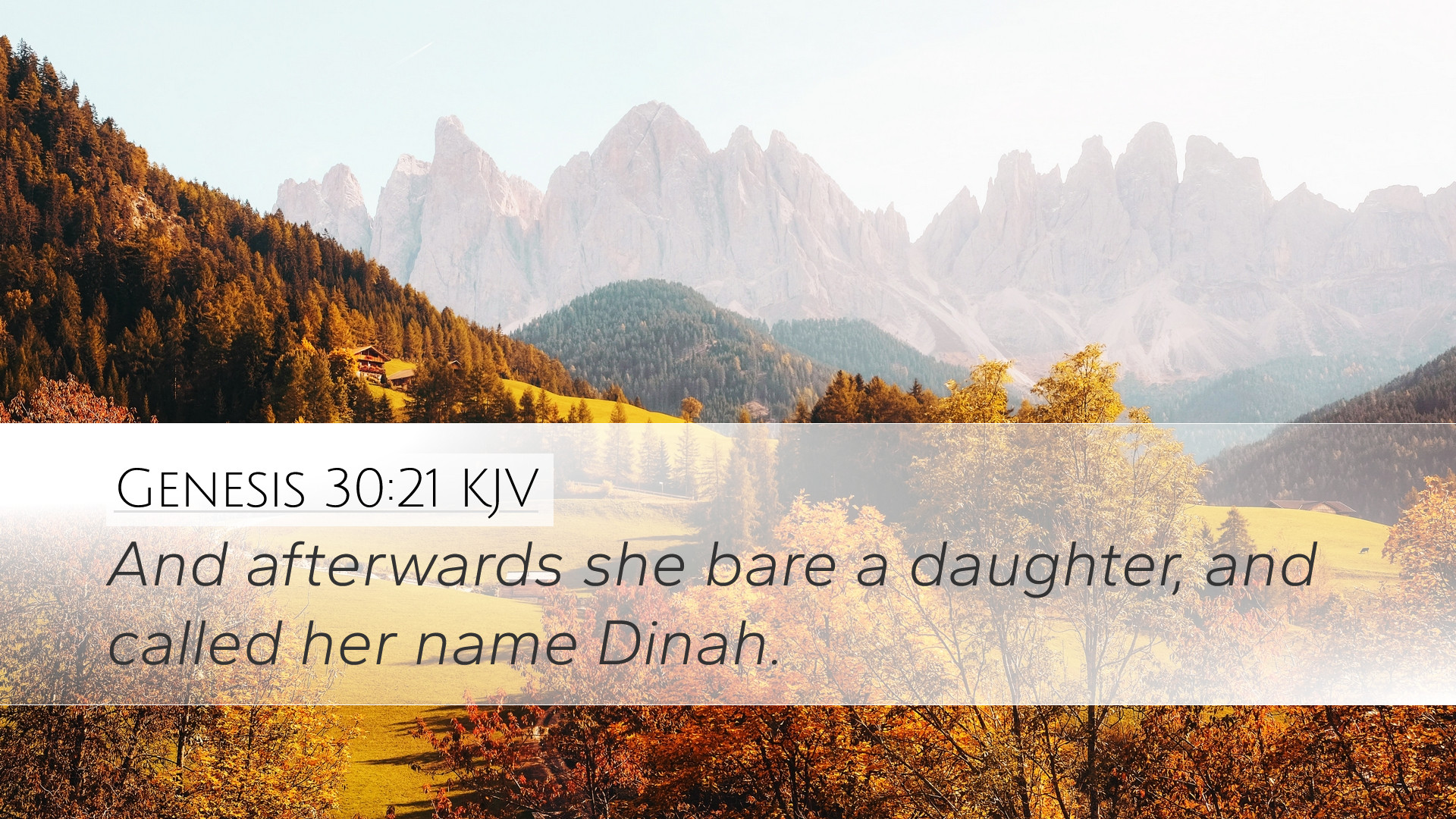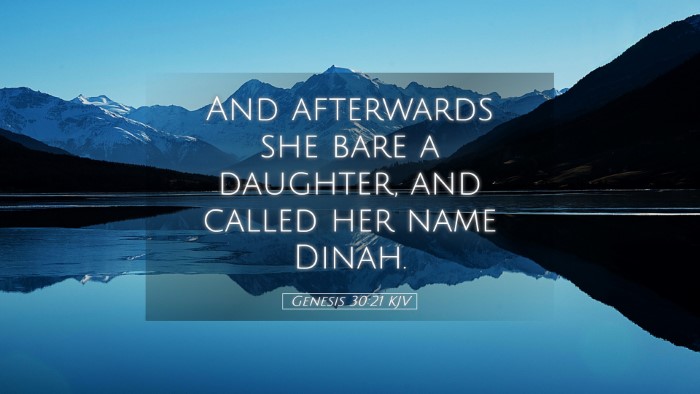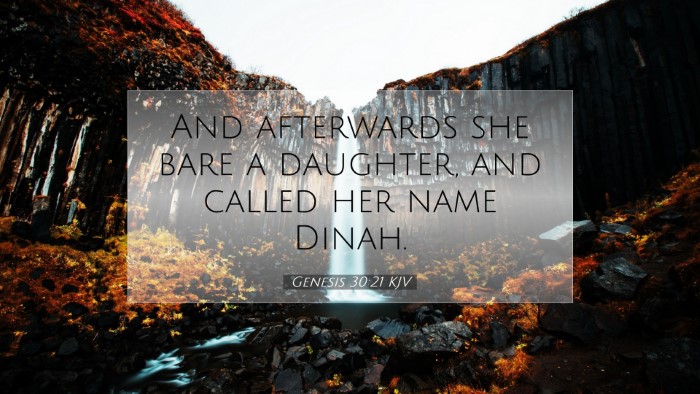Commentary on Genesis 30:21
Genesis 30:21 reads: "And afterward she bare a daughter, and called her name Dinah." This verse is a pivotal moment in the narrative of Jacob’s family, particularly within the context of Rachel and Leah’s rivalry.
Contextual Overview
The backdrop of this verse is found in the complex family dynamics between Jacob, Leah, and Rachel. Leah had borne Jacob multiple sons, while Rachel was envious of her sister’s fertility. In this chapter, we see the unfolding of God's providential care in the lives of His people amidst their strife.
Insights from Matthew Henry
Matthew Henry notes the significance of Dinah's birth in relation to Leah’s ongoing pursuit of her husband’s affection. He observes that Leah's desire for Jacob's love influenced her naming of children based on her circumstances. The name Dinah, which means "judged" or "vindicated," indicates Leah's recognition that God has acted in her favor, particularly as she views her previous children as signs of divine approval and blessing.
Insights from Albert Barnes
Albert Barnes emphasizes the prophetic and typological significance of Dinah in the biblical narrative. He elucidates that Dinah’s birth occurs at a time when Leah seeks to secure her place in the family hierarchy by producing a daughter. Barnes suggests that Dinah's role within the Hebrew narrative extends beyond simply being Jacob's daughter; she plays a critical part in subsequent events involving the tribes of Israel, particularly due to her encounter with Shechem, which leads to further conflicts. Additionally, Barnes highlights the themes of jealousy and rivalry inherent in the familial relationships, showcasing the broader implications of human emotions and their effects on covenantal relationships.
Insights from Adam Clarke
Adam Clarke provides a thorough examination of the cultural context surrounding the birth of Dinah. He points out that bearing sons was a primary focus for women during this era, and the birth of a daughter was often regarded with less esteem. Nevertheless, Clarke reminds readers that God’s providence is visible in all births, regardless of gender. He notes that Dinah, as a daughter, contributes to the lineage of the Israelites and illustrates God's broader plan for His people. Moreover, Clarke also reflects on the social implications of Dinah’s story, particularly regarding her eventual abduction by Shechem and the resulting violence enacted by her brothers, signifying the complexities of family identity and protection prevalent in this narrative.
Theological Implications
This verse, while brief, encompasses profound theological implications that resonate through the fabric of Scripture.
- Divine Providence: Throughout Genesis, each birth is intertwined with themes of divine planning. Dinah’s birth reflects God’s providence amidst human strife.
- Gender and Identity: The narrative shows the complexity of women's roles. Leah’s ambition and Rachel’s envy cultivate narratives that inform later Israelite identity.
- Rivalry and Relationships: The fraught relationships within Jacob’s family set the stage for further biblical narratives that explore themes of reconciliation and conflict.
- God’s Mercy: Despite human failings, God remains faithful to His promises, working through flawed characters to fulfill His design for Israel.
Conclusion
Genesis 30:21 signifies a crucial moment in the ancestral narrative of Israel. This verse intertwines human dynamics with divine providence, revealing God’s unyielding faithfulness amidst familial rivalry and strife. As scholars and practitioners reflect on this passage, it is essential to recognize Dinah not just as a figure in the lineage of Jacob, but as a representation of the complexities of identity, relationships, and the overarching narrative of redemption that Bible scholars seek to understand deeply.


